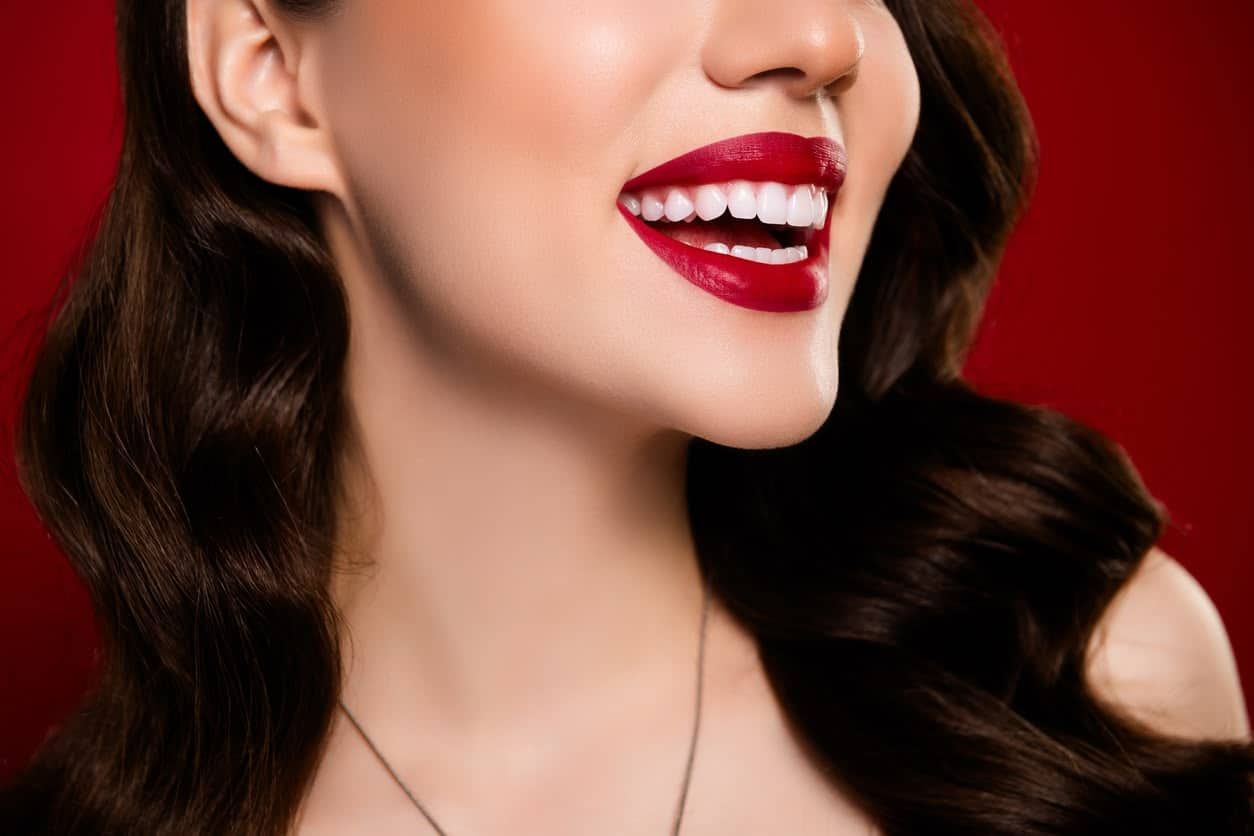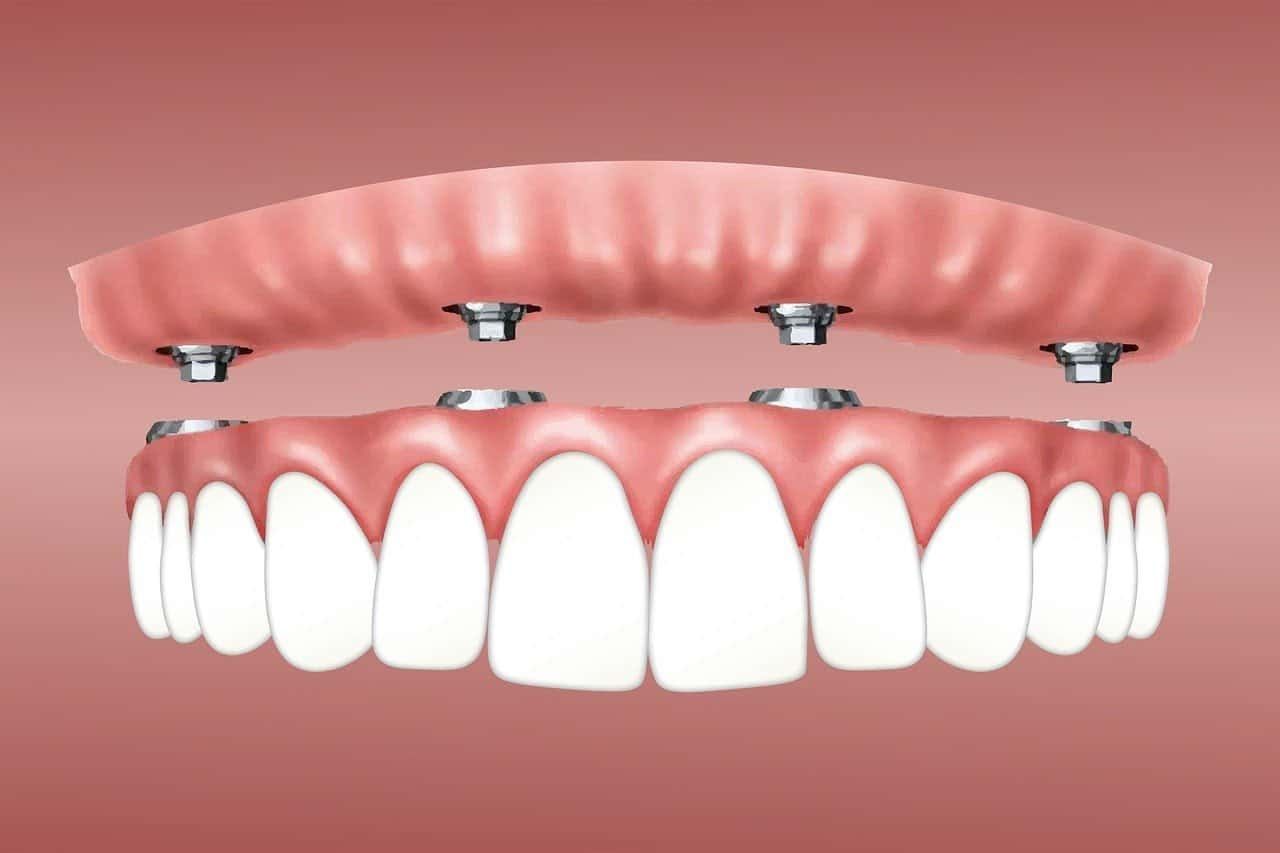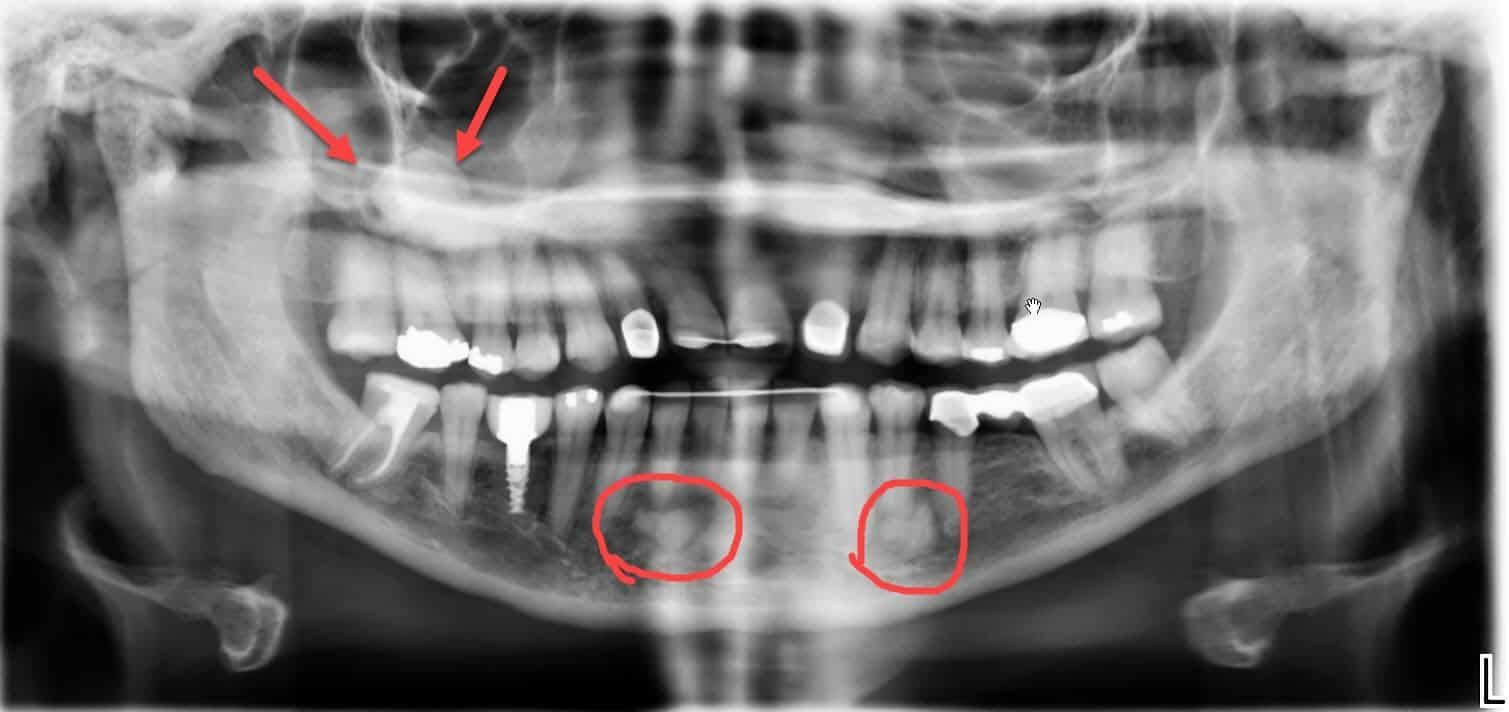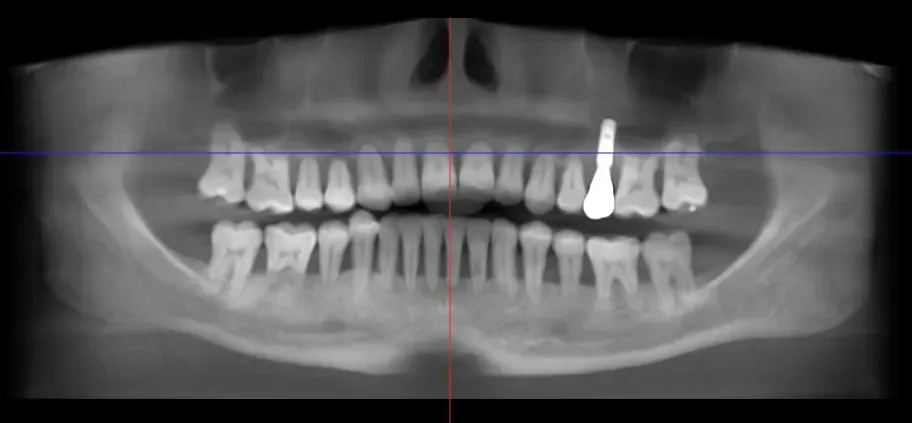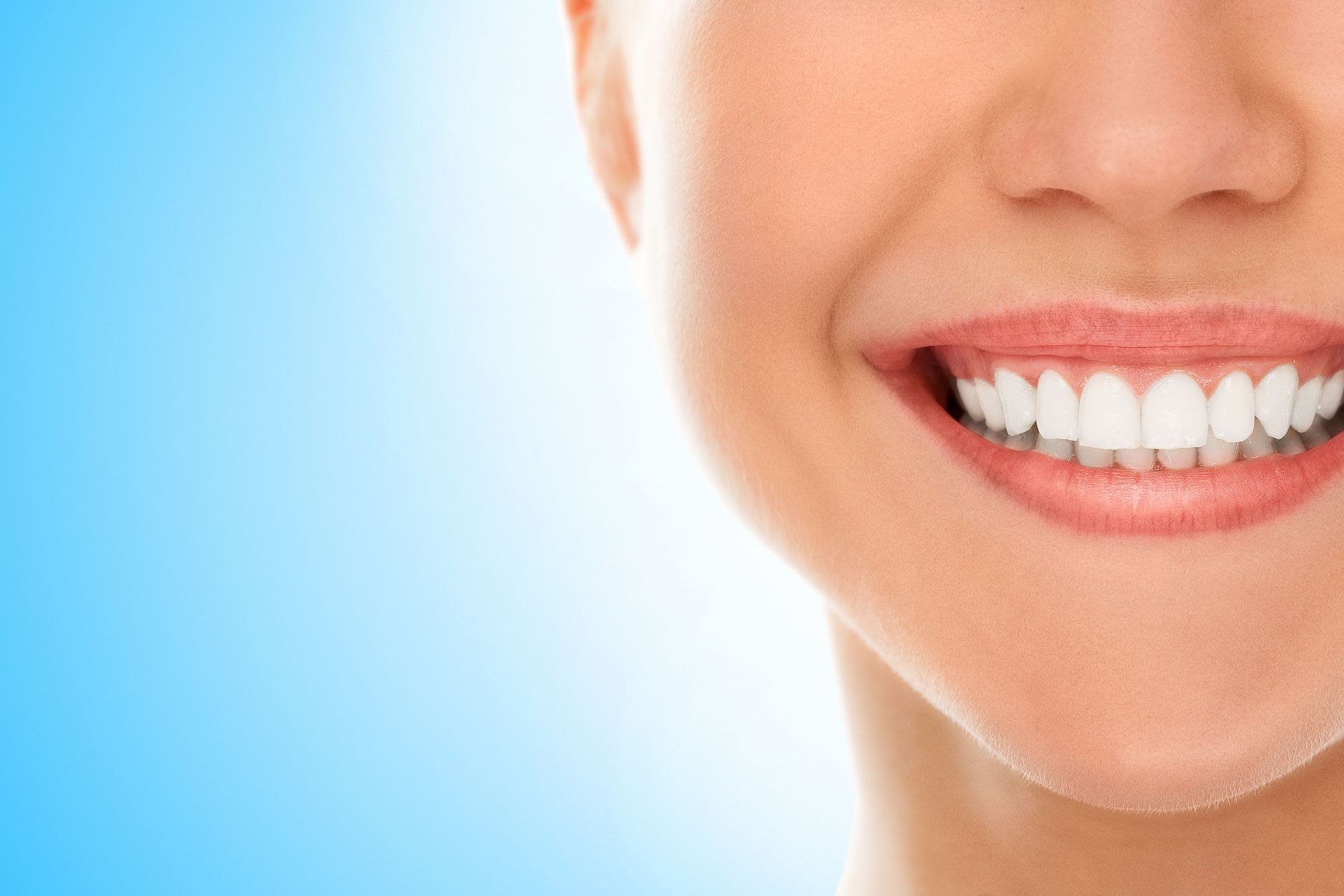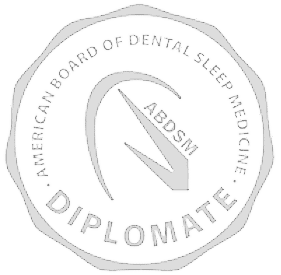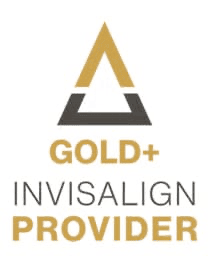How Do I Know You Grind Your Teeth, Even if You Don’t Believe Me?
I don’t know why exactly, but patients at my Charlotte dentist office (and all around the country, according to my colleagues) seem to have a problem believing me when I say, “Wow – you grind your teeth really badly.” In fact, the most common response is, “No I don’t!” said with a passion that makes it seem I’m accusing them of killing baby animals. Seriously – and there are a few reasons why people think they’re right and I’m wrong……..even though I’m the doctor. Weird, huh?
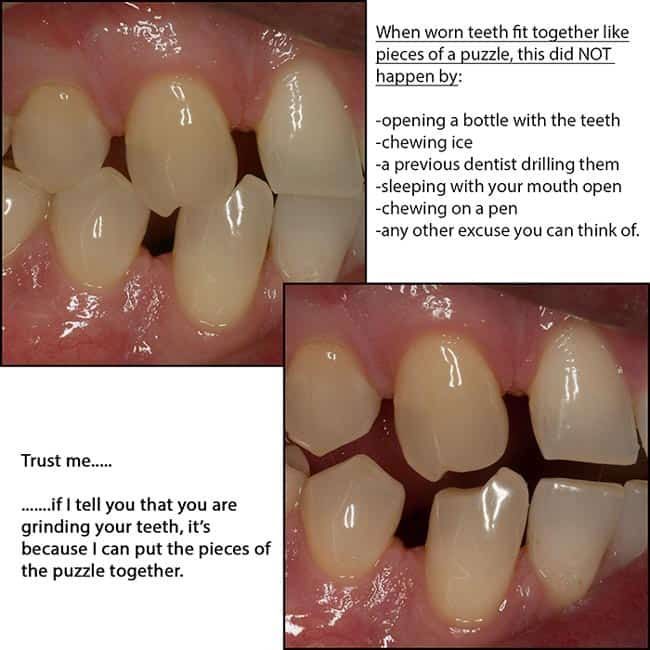
Reasons People Don’t Think They Grind or Clench Their Teeth
When patients tell me they KNOW they don’t grind their teeth when they sleep, I’m always a little amazed. I mean….how the heck do you know what you do when you’re asleep? Here are some of the reasons people tell me how they know:
- My husband/wife/significant other would hear me.
- My jaws don’t hurt when I wake up.
- My teeth don’t hurt.
- I’m a light sleeper.
- When I was younger, my dentist ground down my teeth to look like this.
- I sleep with my mouth open.
- I concentrate on sleeping with my mouth open, and that stops it. (Even better than just sleeping with your mouth open – you CONCENTRATE on it?)
- I can’t grind my teeth all night, because I snore all the time.
There are probably a few others that I’ve heard, but these are the most common excuses. However, let me just remind you of one very important fact:
When you are asleep, you don’t have a clue what you’re doing or not, because you’re asleep!
So What Exactly is Bruxism, Anyway?
Let’s get a little information out there so we have a basis for understanding what’s going on, shall we? This is a topic I really enjoy, so I try to stay reasonably up-to-date on current research and am friends with a fair number of internationally-recognized experts in the field. If you want to a more in-depth summary, this Wikipedia article on bruxism is mostly up-to-date.
- Bruxism is classified as a SLEEP DISORDER. There is still a lot of debate about exact causes.
- The “bite” has absolutely nothing to do with whether or not you grind your teeth. IOW, it doesn’t matter if your teeth fit together perfectly or all crazy.
- If you do grind, it only happens in short bursts; it’s not all night. Each instance may only last for 30 seconds to a minute. You may well sleep with your mouth open 90% of the night (doubtful), but still grind the heck out of your teeth during the 10%.
- You can clench up to 130% harder at night than during the day, because your protective reflexes are turned off.
- Clenching and grinding aren’t really the same thing.Teeth Clenching: the teeth squeeze so hard that they can’t move. these patients typically do little damage to their teeth but have much worse pain.
- Teeth Grinding: the teeth still squeeze hard, but not so hard that they can’t move around. These patients tend to do lots more damage, but actually have less pain.
- Some people do a mix of both
- Enamel is 15% harder than your bones; to wear your enamel flat in a lot of places, it takes a LOT of force, a LOT of times, over a LONG period of time. You can’t do it in a couple months.
- An acidic diet (sodas, foods, etc) weakens your enamel and makes it easier to wear down during bruxism. It’s like a multiplier.
- Not everybody grinds or clenches the same way, but everyone has a pattern that doesn’t seem to change. One of my colleagues and mentors tracked more than 400 patients over 10 years, and found that – no matter what treatment the patients had (braces, major reconstruction, combination), their bruxing pattern stayed amazingly consistent.
A Nightguard is Cheaper Than a Smile Makeover
Let’s look at some other examples of how teeth can look when damaged by bruxism (click on any image for a full-screen view). Now bear in mind…..NONE of these patients reported any jaw pain or headaches, and none of them believed that they did this by grinding their teeth, but I promise – there is no other way you can do this!
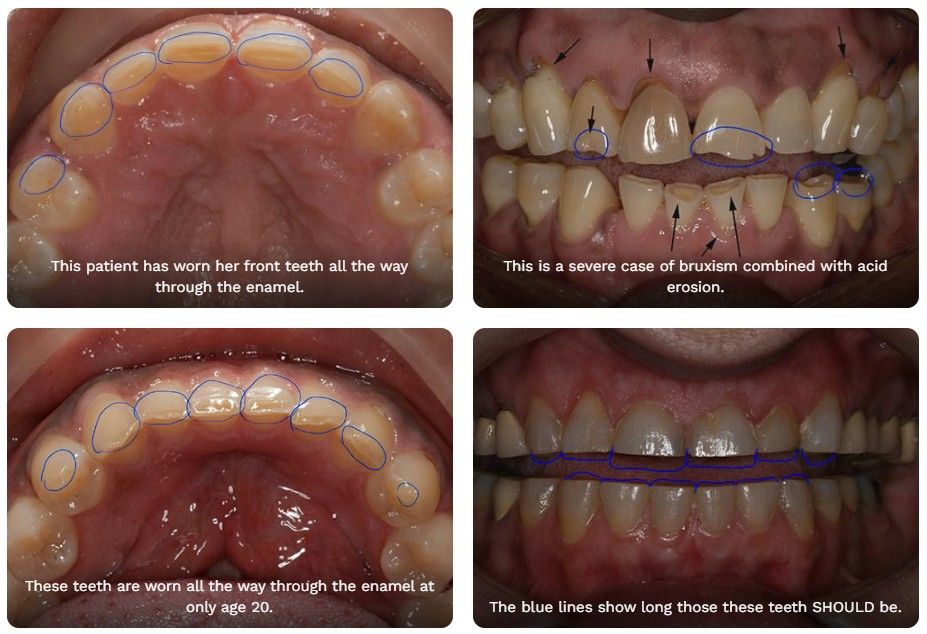
Now, looking at those photos, let’s talk about the cost of a nightguard (even a custom-made one by a dentist) vs. what it will cost to fix those teeth:
- If you get a cheapo, “boil’n’bite” nightguard from the drugstore, it will probably only cost $25 or so. What’s the catch to the cheap option? I’ve never yet known anyone to actually wear one of those more than a week or 2. And if you don’t wear the nightguard, it doesn’t work, so what’s the point?
- A custom-made nightguard at the dentist, like the NTI-tss Nightguard we recommend, can cost between $500-800; I have many patients wearing theirs now for more than 6 years with only minor repairs.
- In comparison……a smile makeover for any of the cases in that photo gallery will cost a minimum of $8,000, and potentially up to $40-50,000.
Now……..how expensive is that nightguard, really?
“My Insurance Doesn’t Pay for Nightguards”
OK………so what? News flash – your insurance won’t pay for a smile makeover, either! You tell me – do you want to pay me $5-800 for a nightguard, or do you want to pay me $40-50,000 for a smile makeover? Obviously, I make a lot more money with the smile makeover, but hey, there’s an easy way for you to NOT pay me for it – get the nightguard and wear it! It honestly and truly doesn’t make a difference to me which you choose, because it’s your choice and they’re your teeth. But if I’m telling you how to save tens of thousands of dollars down the road……isn’t it worth considering, even if the nightguard is out of your pocket?
So what do you think? Are you still sure you don’t grind your teeth? Still don’t want to get the nightguard? Or would you like to save time in the dentist’s chair and a lot of money, and let the expert help you avoid all that?

